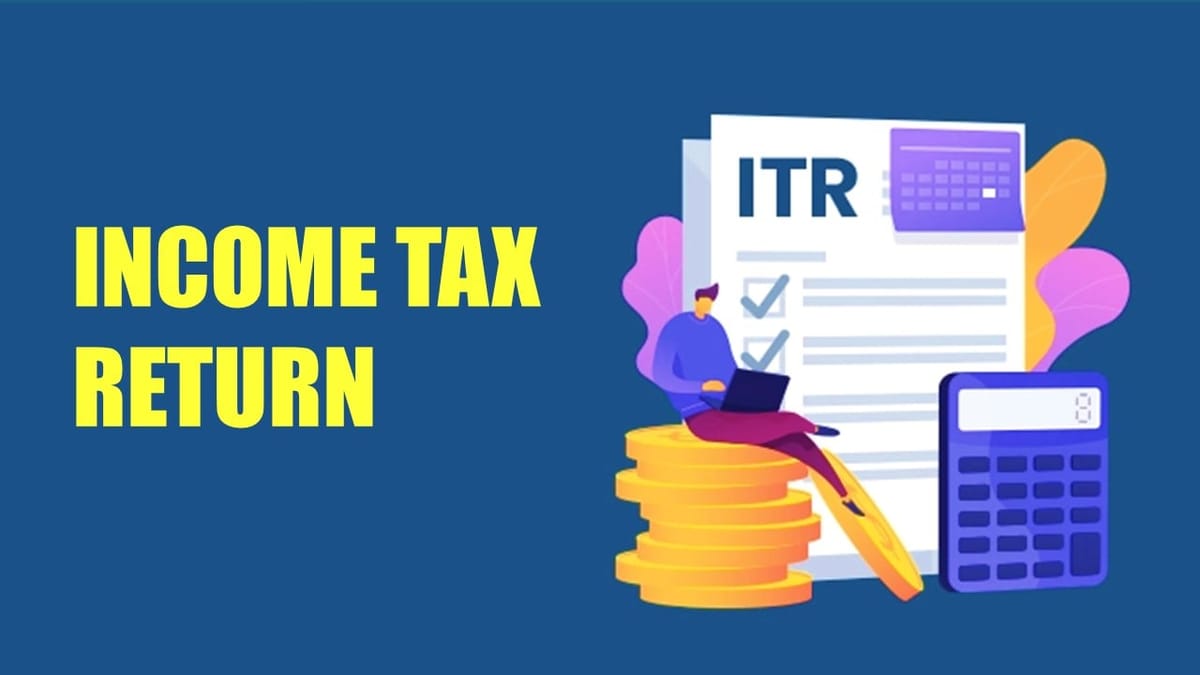ITR Filing Deadline: Deadline to file ITR is near, know how much tax you will need to pay
Meetu Kumari | Jul 8, 2022 |

ITR Filing Deadline: Deadline to file ITR is near, know how much tax you will need to pay
Every year the deadline to file ITR, gets extended but that is not an excuse to sit and wait for the last moment to file the ITR. If ITR Filing deadline is not extended then you will be liable to pay a penalty for late payment. So, it’s better to file ITR on time before the deadline. As of now the last day to file individual ITR is 31st July 2022.
It is again time for the taxpayers to file income tax returns for the assessment year 2022-23 and the deadline is ending this month. The last day to file ITR is 31st July 2022 for now. Usually, there is always an extension in the deadline but that should not be a reason to sit idle and wait for the last moment or the extension. If the extension is not given then you might be charged with a penalty. While filing ITR the most important thing to know is how to find out about your taxable income, which is what we will explain today…
It is easier for salaried people to file ITR
Nowadays there is an increase in people who have multiple sources of income including salary, rental income, and income from shares or mutual funds. Under the Income Tax Act, the total taxable income has been divided into 5 categories which include income from salary, income from house property, capital gain, business and professional income, and income from other sources. If the sole source of your income is salary, then it is not much headache to file ITR. You may find out about your taxable income through Form -16 and easily file ITR. Form-16 has all details of till date tax paid, full income, tax relief, and deductions. So, the Form-16 is a TDS document in a way.
This is how the income from rent should be calculated
Other than salary, the most common source of income for most people is ‘Rent’. Real estate is a favourite investment avenue for Indians. People buy houses and lend them as rent as a passive income source. In this category, three things are important in this category. You need to check whether your property is a self-occupied or rental property or a rentable property. Self-Occupied Property is the property that is in possession of the person himself. If you have more than one property, you can self-occupy any one of them. It is not considered as income while calculating tax. If there is a loan on the same then you can get 2 Lakh relief on the interest and also 1.5 lakh relief on the loan amount after payment as per Section 80C. The property given under rent is called a rental property whereas the property which is not self-occupied and also not given on rent will come under the category of deemed to be let out properties i.e; the properties which can be let out on rent.
Tax to be paid on income earned through share market
Income from the sale or buying of houses/ shops, mutual funds and shares etc. is also liable to be taxed. The profit earned after selling these is known as Capital Gains. For how long did you hold the property/ share/ MFs before selling them helps to decide the type of capital gain. Most capital gains are of two types, short-term capital gain(STCG) and long-term capital gain (LTCG). Short-term capital gains and long-term capital gains both have a set rate of income tax assigned to them. You have to pay tax according to the same.
Now taxpayers have these options to pay tax
Many people nowadays do some other business alongside their jobs. Those earning through these businesses have to give details of the same under the category of income from business or profession. These incomes include bank accounts, bank FD, a pension from the insurance company, shares and dividends received from mutual funds. This way you can know about your total taxable income. After this under sections 80C, and 80D etc., you can get tax relief and deductions. If you choose the new tax system you may lose the 70 types of tax relieves or deductions. You may find out more about the best-suited system after figuring out your total taxable income.
In case of any Doubt regarding Membership you can mail us at [email protected]
Join Studycafe's WhatsApp Group or Telegram Channel for Latest Updates on Government Job, Sarkari Naukri, Private Jobs, Income Tax, GST, Companies Act, Judgements and CA, CS, ICWA, and MUCH MORE!"